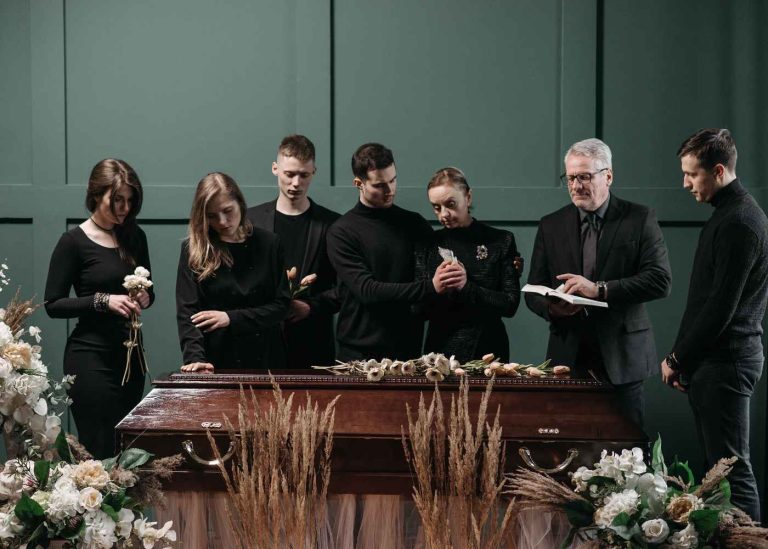Planning funeral arrangements during times of grief requires careful attention to religious customs and cultural practices that honor the deceased while providing comfort to mourning families. For Jewish families, finding a funeral home that understands and respects traditional Jewish burial practices is essential for ensuring proper observance of religious requirements and meaningful ceremonies.
Many funeral homes lack the specialized knowledge and cultural sensitivity needed to handle Jewish funeral arrangements properly, potentially creating additional stress during already difficult times while compromising important religious observances that provide spiritual comfort to families.
Understanding why Jewish tradition expertise matters helps families make informed decisions about funeral arrangements that honor their faith while providing appropriate support during mourning periods.
Ensuring Proper Religious Observance
Jewish funeral traditions include specific requirements for body preparation, timing of burial, and ceremonial elements that must be followed according to religious law and community customs. Knowledgeable funeral homes like Laurel Hill West & Laurel Hill Funeral Home understand these requirements and ensure proper compliance.
Taharah procedures for ritual washing and preparation of the deceased require trained personnel who understand the sacred nature of these practices while maintaining the dignity and respect that Jewish law demands throughout the preparation process.
Timing considerations for Jewish burials typically require prompt arrangements that accommodate religious requirements for burial within specific timeframes while respecting Sabbath and holiday restrictions that affect scheduling.
Kosher requirements for materials, procedures, and facilities ensure that all aspects of funeral arrangements comply with Jewish dietary laws and religious standards that affect everything from embalming practices to burial materials.
Providing Culturally Sensitive Support
Jewish mourning customs include specific practices for sitting shiva, observing yahrzeit, and other memorial traditions that require understanding and accommodation from funeral service providers who work with grieving families.
Family guidance through traditional practices helps mourners understand their options while ensuring funeral arrangements support religious observances and cultural customs that provide spiritual comfort during difficult times.
Community coordination with rabbis, synagogues, and Jewish community organizations ensures funeral arrangements integrate appropriately with religious services and community support systems that assist mourning families.
Respectful communication demonstrates understanding of Jewish values and customs while avoiding practices or suggestions that might conflict with religious beliefs or cultural sensitivities during vulnerable times.
Offering Appropriate Burial Options
Cemetery arrangements that comply with Jewish law include coordination with Jewish cemeteries and burial societies that maintain religious standards for grave sites, burial orientation, and cemetery practices that affect eternal rest.
Casket selection according to Jewish tradition typically involves simple wooden caskets without metal components that comply with religious requirements for returning to earth naturally while maintaining dignity and respect.
Burial procedures that follow Jewish custom include proper positioning, ceremonial elements, and graveside practices that honor religious traditions while providing meaningful closure for family members and community.
Memorial options that respect Jewish tradition include guidance about appropriate monuments, inscription practices, and memorial customs that comply with religious law while honoring the deceased’s memory.
Understanding Denominational Differences
Orthodox requirements include strict adherence to traditional practices and religious law that affect every aspect of funeral arrangements from preparation through burial and mourning observances.
Conservative practices may allow some modern adaptations while maintaining core religious requirements that funeral homes must understand to provide appropriate guidance and services.
Reform traditions often incorporate contemporary elements while preserving meaningful religious customs that require knowledgeable funeral directors who can accommodate varying observance levels.
Reconstructionist approaches to funeral practices may blend traditional and modern elements that require flexible service providers who understand diverse Jewish perspectives on death and mourning.
Supporting Family Needs
Grief counseling that incorporates Jewish perspectives on death, mourning, and healing provides families with culturally appropriate support that acknowledges religious beliefs about life, death, and remembrance.
Memorial service planning helps families create meaningful ceremonies that honor the deceased while supporting religious observances and community traditions that provide comfort during mourning periods.
Financial guidance about costs and payment options helps families manage funeral expenses while understanding which services are essential for proper religious observance versus optional additions that may not align with traditional practices.
Follow-up support includes assistance with ongoing memorial obligations, anniversary observances, and community connections that help families maintain religious practices throughout extended mourning periods.
Maintaining Community Connections
Synagogue coordination ensures funeral arrangements integrate properly with religious services while accommodating community customs and pastoral care that support families during grief and mourning.
Rabbi collaboration provides appropriate religious guidance while ensuring funeral directors understand specific requirements and preferences that affect individual family situations and religious observances.
Community resource connections help families access support services, charitable organizations, and religious resources that provide ongoing assistance during mourning and memorial periods.
Traditional practice preservation through knowledgeable funeral homes helps maintain important religious customs while educating families about meaningful traditions that enhance spiritual comfort and community connection.
Ensuring Meaningful Ceremonies
Service customization within traditional boundaries allows families to personalize funeral arrangements while maintaining religious requirements that provide spiritual significance and community acceptance.
Ritual explanation helps family members understand traditional practices while participating meaningfully in ceremonies that honor their faith and provide appropriate farewell to their loved ones.
Memorial planning includes guidance about appropriate ways to honor the deceased through charitable giving, religious observances, and community activities that reflect Jewish values and traditions.
Making the Right Choice
Finding funeral homes that respect and understand Jewish traditions ensures families receive appropriate support during difficult times while honoring their faith and cultural heritage through proper observance of religious requirements.
Research funeral homes thoroughly to verify their experience with Jewish traditions, community connections, and commitment to religious observance that supports meaningful funeral arrangements and proper spiritual care for grieving families.










